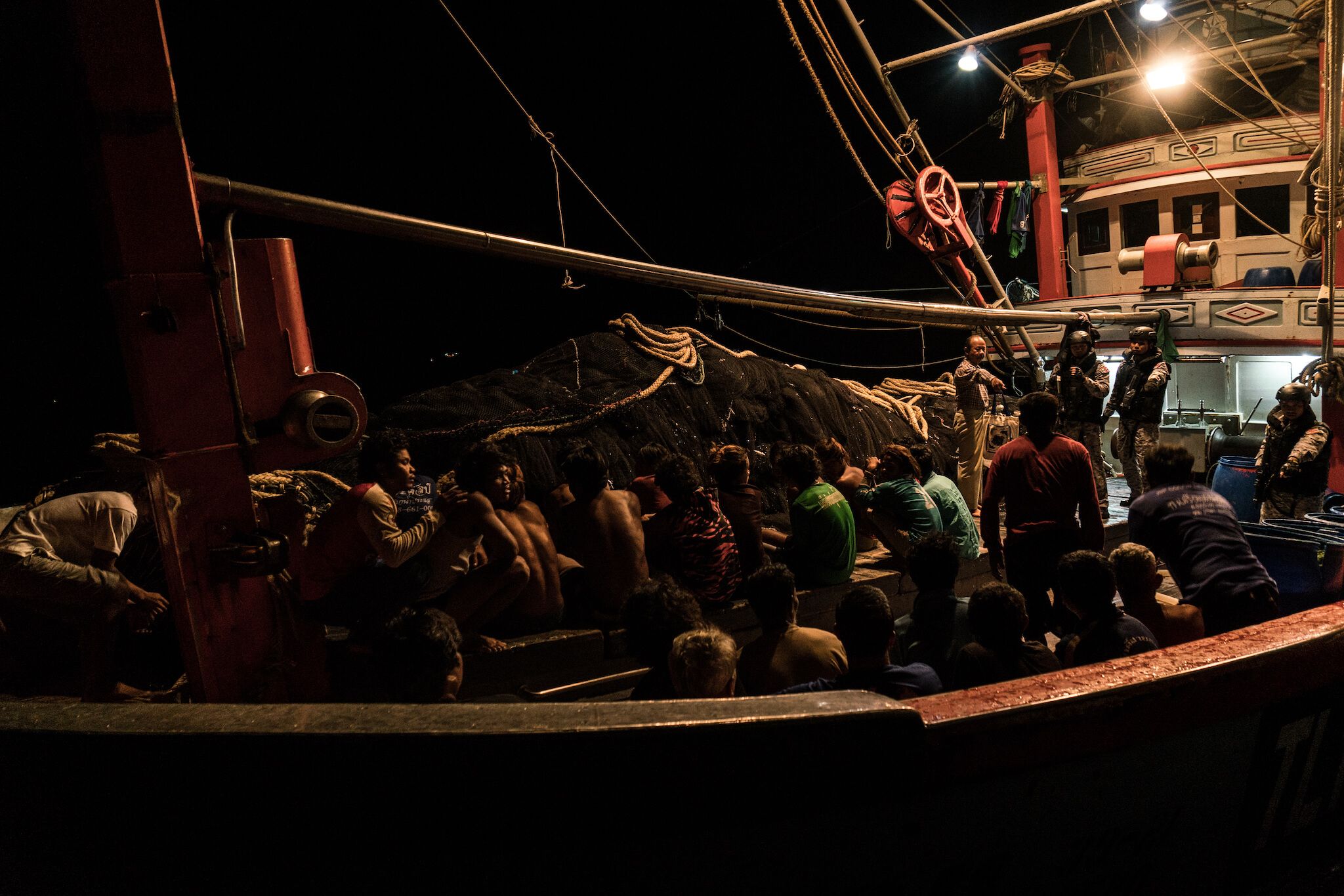Hundreds of miles from shore, a man is shackled by his neck when he is not working and for two years he is sold boat to boat.
Shanghaied from pubs, boys are drugged and dispatched to a hell far over the horizon.
Slavery is not gone. You need only to look to distant-water fishing boats to see something most of us thought ended a century ago.
Visit a realm where rules are written by diplomats not criminologists, where labor inspections are handled by bureaucrats, not investigators, where crime is patrolled more often by vigilantes or villains than police — and, as a result, where captains sometimes become captors.
This podcast episode takes listeners on board some of the roach-and-rat-infested ships that help explain why the scourge of sea slavery is so pervasive and hard to patrol.
Listen here:
